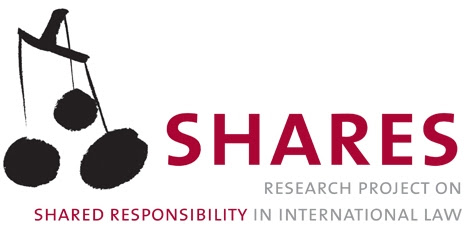Belgium has for many years been struggling with significant prison overcrowding. The Netherlands, on the other hand, has in recent years seen its prisons gradually emptying due to a decline in crime, forcing the Dutch government to close eight of its prisons. The two countries came up with the obvious solution, although one never adopted before in Europe: Belgium would rent an already staffed and equipped prison in the Netherlands. The location chosen was Tilburg prison, which is quite close to the border with Belgium.
The terms of the rent are set out in the Interstate Convention of 31 October 2009 (Dutch only), which entered into force on 1 February 2010. According to the agreement, Belgium will rent the prison for the sum of €30.000.000 per year for up to 500 detention places, with €212.917 more for every extra 50 places. With a maximum capacity of 681 places, of which 675 have now been filled, Tilburg Prison is in fact Belgium’s largest prison for sentenced prisoners. The Interstate Convention details a number of aspects of the relations between the two Contracting Parties, including matters such as the applicable law, the protection of privacy, and the Belgian director’s powers and general responsibilities. It also covers the placement of prisoners within Tilburg Prison, arrangements for sentence enforcement, prisoners’ complaints and actions, medical care outside the prison, transport, escapes, deaths, and security. Further, the Interstate Convention includes provisions on criminal matters and provisions relating to inviolability and immunities.
The agreement raised some issues for the European Committee for the Prevention of Torture and Inhuman or Degrading Treatment or Punishment (CPT) – the Council of Europe’s Anti-Torture watchdog – which regularly monitors prisons within the 47 Member States of the Council of Europe. Last week, the CPT published its report on the visit it brought to Tilburg prison in October 2011. The CPT explains its role in connection to this unprecedented form of cooperation as follows:
‘The European Convention for the Prevention of Torture and Inhuman or Degrading Treatment or Punishment, of 1989, provides that “Each Party shall permit visits, in accordance with this Convention, to any place within its jurisdiction where persons are deprived of their liberty by a public authority” (Article 2). In application of the Interstate Convention, the Netherlands makes available the prison premises and the prison and medical staff and transfers the prisoners. Dutch criminal law is applicable within the prison. On the other hand, all the inmates present in the prison are serving final sentences imposed by Belgian courts, in pursuance of Belgian legislation, and the prison regime is Belgian. All the staff working in the prison are Dutch with the exception of the Prison Director, two Deputies and the staff from the Penitentiary Psychosocial Service. Taking account of the Interstate Convention, and particularly the aforementioned elements, there is clearly shared jurisdiction where Tilburg Prison is concerned. Consequently, the visit to this prison was notified to the Netherlands and Belgium in pursuance of Article 8, paragraph 1 of the Convention. Furthermore, the visit report has been forwarded to both States Parties, and it is for the authorities of these two States to reply, each in respect of the matters for which they are responsible.’
In effect, the CPT’s report reads like any other report it publishes, the only difference being that its recommendations are directed at two Contracting States instead of one. The CPT thus leaves any question of which party should follow up on which recommendations up to Belgium and the Netherlands to solve. Such issues should in the first place be answered on the basis of the treaty. Of practical importance is that the treaty provides that all complaints channels open to prisoners are directed to the Belgian prison authorities. But it is not unimaginable, especially in view of the fact that Dutch staff is responsible for the daily security and treatment of the prisoners, that the Netherlands would share in part of the obligations as well. The specific tasks and duties of Dutch staff are set out in a further (unpublished) cooperation agreement between the Belgian Directorate-General for Penitentiary Institutions and its Dutch counterpart. The Belgian Minister for Justice explained (Dutch only) to the Belgian parliament that in practice, ‘there would be a mixture of obligations that could fall under either Belgian or Dutch law’.
Fortunately, the report is quite positive about the treatment in Tilburg prison. Although the CPT notes some issues such as inter-prisoner violence and a lack of educational and cultural activities, the prisoners seem quite pleased about the treatment in the Netherlands, emphasising ‘the professional attitude and respect shown to them by the prison staff’ and making ‘particularly favourable comments about the difference in attitude – characterised by dialogue and constant contact – between the staff at Tilburg and those at other Belgian prisons’.
One issue which does bother the prisoners however, is the Dutch food. As in any Dutch prison, the main dish is delivered frozen, pre-packaged and uniform. In Belgium however, dishes cooked on the spot are the norm. The CPT delegation was told that up to 30% of the frozen food was deposited in the bin straight away. But the CPT was pleased to note that, being aware of the issue, the prison authorities have taken the initiative of installing small kitchens in the detention units where the prisoners can cook themselves.
